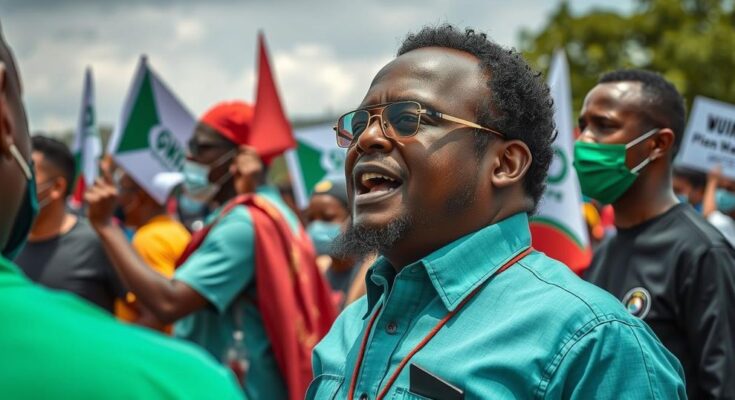The Comoros opposition has rejected the legislative election results, citing serious claims of electoral fraud such as ballot box stuffing. Daoud Abdallah Mohamed, a leader in the opposition, accused the elections of being compromised, while the ruling party’s candidates were declared winners. President Azali Assoumani dismissed these allegations, stating the opposition must substantiate their claims, as the opposition has opted not to participate in the upcoming second voting round.
The opposition in Comoros has officially rejected the results of the recent legislative elections held on Sunday, citing widespread allegations of electoral fraud. Daoud Abdallah Mohamed, leader of the United Opposition coalition and former interior minister, articulated the opposition’s stance by declaring that the elections were tainted by severe irregularities, including ballot box stuffing and discrepancies between the number of votes cast and registered voters. Despite these claims, the independent electoral commission announced that candidates from the ruling Convention for the Renewal of the Comoros (CRC) party won the majority of seats with a reported 70 percent voter turnout, although many observers noted inconsistencies in the reported participation rates.
President Azali Assoumani, who has held power since 2016, dismissed the opposition’s accusations, suggesting that it is the responsibility of the opposition to substantiate their claims. Notably, the upcoming second round of voting scheduled for February 16 has been rejected by the United Opposition, further deepening the rift between governmental and opposition factions regarding the electoral process.
The context of the rejection of the election results in Comoros stems from a politically charged environment characterized by accusations of electoral malpractice. The legislative elections, which were largely boycotted by the opposition, have drawn criticism regarding their transparency and fairness. The ruling party’s significant electoral victories have led to concerns about the integrity of the electoral process and the implications for democratic governance in the archipelago nation. Observers have raised alarms over irregularities during the polls, further complicating the political landscape in Comoros.
In summary, the rejection of the legislative election results by the opposition in Comoros reflects significant disputes over electoral integrity. The allegations of gross fraud and irregularities highlight ongoing tensions within the political framework of the country. With the ruling party reaffirming its victories amidst these controversies and the opposition boycotting the next phase, the path towards reconciliation and electoral legitimacy appears increasingly fraught.
Original Source: www.barrons.com




